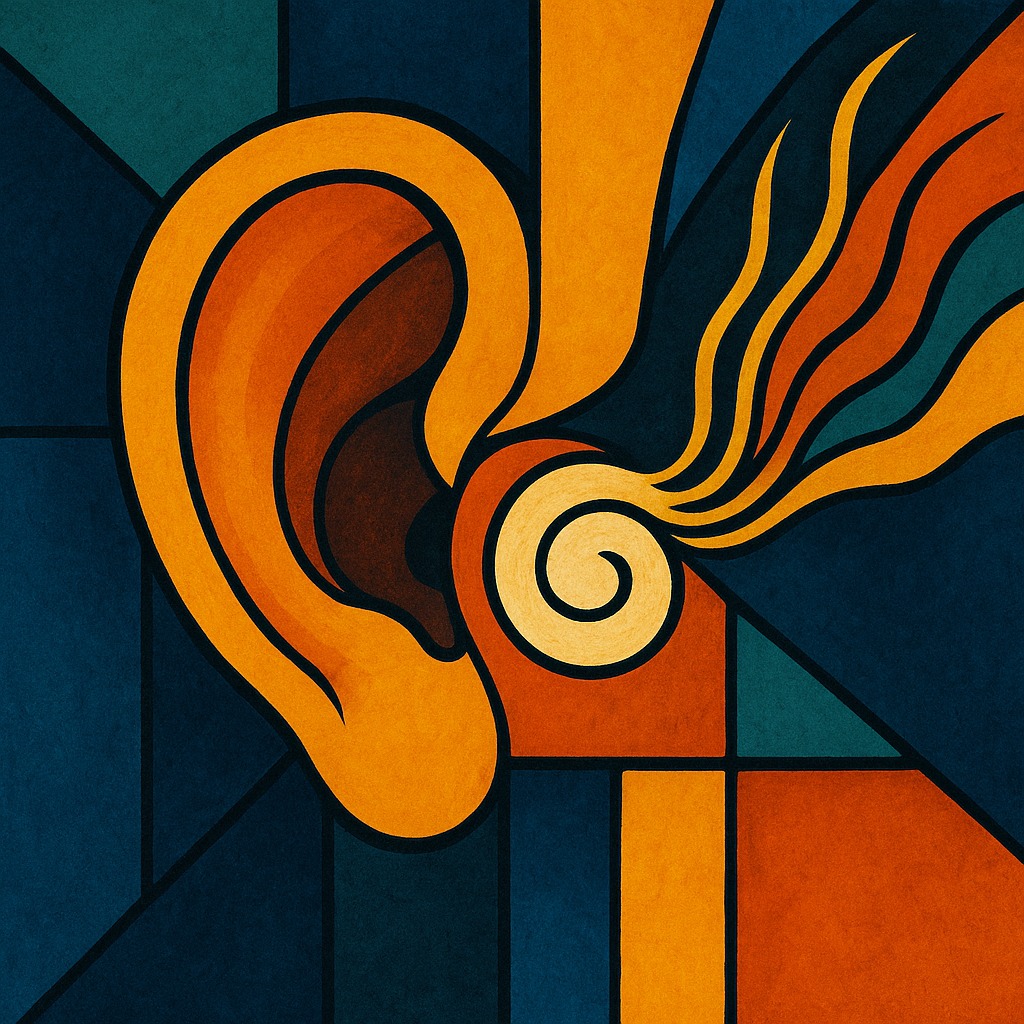“Nothing is coming,” Aaftab said in broken English, tapping on his ear and shaking his hand to denote his loss of hearing. Fluent only in Arabic, he had travelled from Oman because he had been told that his tumour was too big and in a precarious location, and that there was a significant risk to life. Just short of his 25th birthday, his parents weren’t willing to take a chance, and that’s how he came to be sitting in my office. “Any ringing in the ears?” I asked his dad to translate. He nodded. He also demonstrated some imbalance while walking as I instructed him to walk heel-to-toe in a straight line.
I plugged in the MRI scan against the white light of the X-ray box in my office and delineated the tumour out for them. “This tumour is arising from the eighth cranial nerve, also called the vestibular cochlear nerve,” I spoke slowly for them to understand. “This nerve is responsible for balance and hearing, which is why he is having problems,” I explained, and they simultaneously acknowledged. It looked like a big dollop of vanilla ice-cream straddled on a tiny cone, the cone being the internal auditory canal from which the tumour originates. I jokingly asked if he had such a sweet tooth that dessert was lodged in his brain. They smiled but just a little, the underlying tension in the room visibly palpable. Or maybe it was a really bad joke. “Will he be alright?” his hijab-clad mother questioned while praying on her misbaha or prayer beads. “Of course he will,” I assured, as I went on to describe the operation and the events that would follow thereafter. “Inshallah,” they said in unison.
On a sunny day in April, we wheeled him into the operating theatre. I made an incision behind the ear getting straight down to the bone, carving out a 4 cm circle of the skull. The outer covering of the brain – the dura – was tense and bulging as I cut into it to release some cerebrospinal fluid and soften the cerebellum. The tumour was right there, yellow like the sun, refracting its golden light under the microscope. I quickly got into it, gobbling it up with my aspirator but leaving a thin sliver on the hearing nerve so that we could preserve hearing. Removing the first 90% of the tumour took one hour; removing the next 9% took three. We closed meticulously, securing the bone back with tiny plates and screws.
When he woke up after surgery, his parents were delighted. “Something is coming,” he said, tapping on his ear to denote that he could hear a flicker of sound in a previously deaf ear. I was over the moon, because I had been unsure of preserving hearing in a tumour this big. Over the next few days, he was eating and talking well, walking around and ready to be discharged on his 25th birthday. I requested the nurses to order cake for him. His recovery had certainly been worth taking the flight from Muscat.
When I went in for my rounds on the morning of his birthday, he was still asleep. I shook him to wake him up, so that I may wish him, but he didn’t wake up. He didn’t respond even to stimulus of deep pain. Suddenly his composed parents went into fright mode. “He was perfectly okay when he went to bed at night. He even woke up to go to the toilet once,” they explained, terribly alarmed. I rushed him myself to the CT scan room, where the CT showed a large collection of blood between the bone and the dura – an extradural hematoma. “We have to take him back for an operation. If we don’t, he’ll die on his birthday,” I told the parents, giving them no option. I postponed the routine surgery that was scheduled for that day and put this one first. When we opened up his brain again, we saw that a large clot of blood was compressing it. A vessel within the muscle must have opened up, I suspected. We removed the clot and normalcy was restored over the next few days. Soon, he was ready to go home.
“We gave him a new lease on life on his birthday,” I told them, asking them to look at things in a more positive light now that their son was better. “Inshallah,” they all agreed in unison.





19 thoughts on “The eighth nerve”
Very interesting. The suspense was killing. Thanks to your expertise a young life was saved and normalised. Being an atheist I can’t thank god.
Scary but all’s well that ends well.
My ENT boss used to say, 40 yrs ago…..there is a huge medical dictum…..if there is unilateral deafness,tinnitus ( ringing) in the ear…NEVER ignore…..always investigate for the cause!
Great job!
Thanks for pointing this out. But so many don’t bother for tinnitus. It would be good to know when exactly to deep dive in for causes. (My father had tinnitus and age related progressive deafness now for over a decade).
Good learning and love the simple lucid style of Dr.Turel in these articles
Wish medical alerts are taught as subject in school, rather than some vague subjects like now language.
Great surgery doctor. Though the second part of this true science fiction was breath taking. Thanks to ur skill and sincerity.
Where there is understanding and bondage ,there is peace.
Where there is Dr Turel there is a good neural intervention.
Congrats
Your statement of removing ghevfirst 90 percent of the tumour took an hour and the next 9percent took 3 hrs. That show the skill n patient you hv in your work Mazda. Prayers of all your patients and their families are getting credited in that book upstairs buddy.🙏
God Bless you and your family. Firoza and Zinoo Master and family
Bachi gayo! That’s wonderful news! It’s great to hear about medical professionals making a positive impact in people’s lives. Your neurologist’s expertise and dedication have clearly made a significant difference for the young Omani patient and their family.
I thought you lost him. This is a crazy up and down situation with every patient. I wonder how you do this every day and come out stronger.
U relieve so well n here u scared pretty much!!!
Kudos to the timely second intervention!!!
Long live doc!!!
You can inspire confidence in the midst of panic. Besides your expertise your demeanor and prompt action is truly commendable.
The best birthday gift for a 25 years old man and for his parents too. Mazda you never fail to amaze me with the type of surgeries you perform on your patients young and old to give them a life with quality. Bless and bless you.
Best part is he narrates the incidents so well that we almost experience it virtually.
God must be thanked endlessly for sending his emissaries to save the ailing humanity.
Good timely intervention saved his life
Keep up the good work and stay blessed always.
взломанные игры без вирусов — это замечательный способ улучшить игровой процесс.
Особенно если вы пользуетесь
устройствами на платформе Android,
модификации открывают перед вами огромный выбор.
Я лично использую игры с обходом системы защиты, чтобы удобнее проходить игру.
Моды для игр дают невероятную свободу
в игре, что погружение в игру гораздо увлекательнее.
Играя с плагинами, я могу создать новый игровой процесс, что добавляет новые приключения и
делает игру более непредсказуемой.
Это действительно невероятно, как такие моды могут улучшить переживания от игры, а при этом сохраняя использовать такие модифицированные приложения можно без особых неприятных последствий, если быть внимательным и следить за обновлениями.
Это делает каждый игровой процесс более
насыщенным, а возможности практически бесконечные.
Обязательно попробуйте попробовать такие модифицированные версии для Android — это может вдохновит на новые приключения
All is well that ends well…
Btw, what caused the extradural hematoma?
Just curious..
This information is worth everyone’s attention. When can I find
out more?